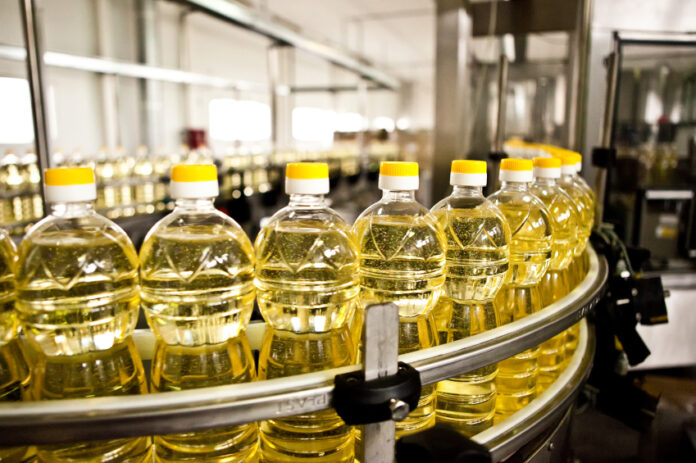ISLAMABAD: The Islamabad Chamber of Commerce and Industry (ICCI) on Thursday expressed concern over the reports that the commercial banks are resisting the opening of LCs of edible oil importers
They said it would create a shortage of ghee and cooking oil in the market and cause further hikes in the prices of those commodities.
Import reliance
In Pakistan, nearly 90% of the import of oilseeds is constituted by palm and soybean oilseeds. In its recently released report for the first quarter of the financial year 2022, the State Bank of Pakistan included a special section on rising palm and soybean imports. According to the report, Pakistan’s palm and soybean-related imports stood at US$ 4 billion in FY21, rising by 47 percent year-on-year, compared to compound average growth of 12.3 percent in the last 20 years. The domestic reliance on soybean and palm has been steeply increasing since the turn of the century. As a result, 86 percent of domestic edible oil consumption in 2020 came from imports up from 77 percent in 2000.
What most might not realise is that Pakistan is dependent on Malaysia and Indonesia for its most basic caloric input. Not only are we the fourth largest importer of palm oil, we also import soybeans and other oilseeds necessary to produce edible oil and the locally essential ‘Vanaspati Ghee.’
Ghee had long been an ancient staple of the rich in the Indian subcontinent. The cooking substance made of clarified cow milk was used sparingly to make delicacies on festive occasions. Ghee, as a signifier of wealth, has even been codified into the Urdu language, with the idiom ‘paancho ungliyan ghee mein’ entrenched as a mainstream saying.
Because most Indians could not afford the product regularly, inventors in Europe had discovered a method to hydrogenate vegetable oil and turn it into a substance that convincingly mimicked the taste and function of ghee.
Edible oil consumption in Pakistan has increased significantly over the last few decades: from 0.7 to 4.7 million tonnes between 1981 and 2020. The main demand drivers are rising population, dietary preferences and increase in per capita income. According to the recent SBP report: Pakistan’s per capita edible oil consumption is already higher compared to economies with similar income levels.
In a statement, Faad Waheed, Acting President, ICCI said that the State Bank of Pakistan had allowed imports related to essential sectors such as food including wheat and edible oil, which was warmly welcomed by the business community of the food sector.
ICCI’s concerns
Reportedly, commercial banks are now conveying to the importers-cum-manufacturers of edible oil that the edible oil has been excluded with immediate effect from the list of essential imports and hence banks are turning down their requests for opening of LCs/retirement of documents, he highlighted.
“This situation was creating a panic-like situation in the market,” Faad said, adding that almost 90% of edible oil in the country was produced from imported oil seeds to meet the national needs of over 4.5 million metric tons per annum.
The existing domestic stocks can “hardly meet” the need of 3-4 weeks, he said stressing it was essential to ensure unhindered opening of LCs/retirement of documents to avoid any shortage of this essential food item in the market.
He said that the cooking oil industry was facing a unique kind of challenge as despite the discharge of sufficient stocks in custom-bonded warehouses at Karachi, the importers-cum-manufacturers are unable to lift them due to refusal by banks to retire the documents.
“This state of affairs is giving rise to negative market sentiments” and drying up the supply chain of staple food products of ghee and cooking Oil, Waheed warned.
He urged SBP to immediately issue a clarification on the matter and direct the commercial banks to honor the LCs of the edible oil sector in order to save the common man from further inflation and the edible oil business community from further losses.




